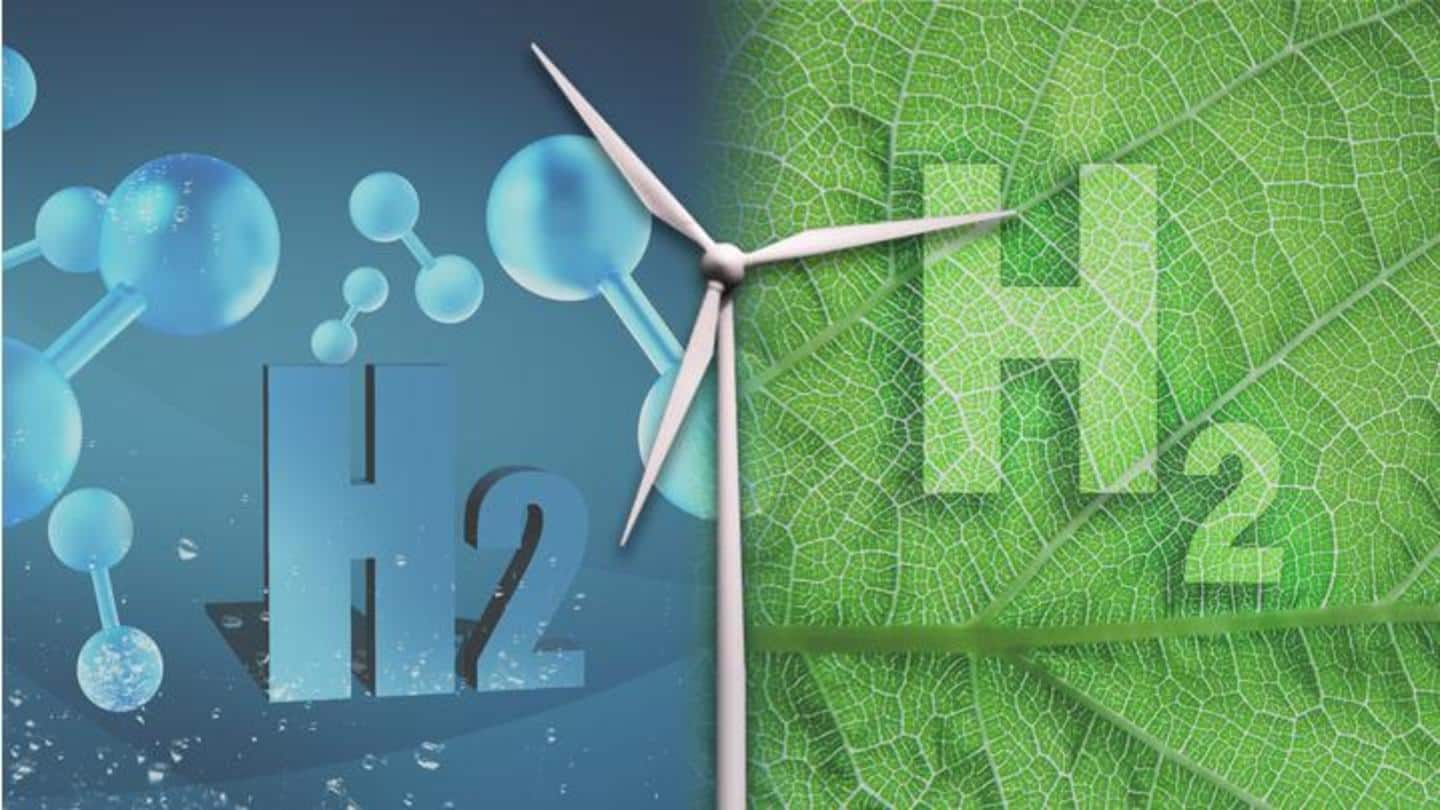
Everything about hydrogen power and why it is gaining popularity
What's the story
As we continue to struggle with alarmingly high greenhouse gases, hydrogen is considered by many as a sustainable source to meet soaring global energy demands.
Combustion of hydrogen does not produce greenhouse gases, it can be stored for future use, and even the production of hydrogen is more efficient and environmentally friendly when compared to conventional sources.
Here, we unpack everything about hydrogen power.
Significance
What makes hydrogen a great energy alternative?
In the wake of increasing carbon footprints and record-high temperatures, hydrogen energy is a great alternative because of several factors.
To begin with, combustion of hydrogen only emits heat with water as a by-product.
This abundant element can be derived from diverse sources, implying that there is no question of singular monopoly when it comes to supply and distribution.
Better choice
Green hydrogen is comparatively eco-friendly and cost-effective
Economic factors seem to play a major role when it comes to making a choice between green hydrogen and blue hydrogen—the two popular choices.
'Green' hydrogen is produced by electrolysis that is powered by renewable energy sources such as solar, wind, or water.
On the other hand, 'blue' hydrogen is produced by a steam reforming process which involves methane, heated steam, and a catalyst.
Classification
Did you know there are several types of hydrogen power?
The spectrum of hydrogen power is based on the production techniques.
'Gray' hydrogen is produced by steam reformation method. 'Turquoise' hydrogen refers to production via pyrolysis of fossil fuels.
'Pink' and 'Yellow' hydrogen are produced by electrolysis. 'Purple' hydrogen is acquired by electrolysis using atomic current.
'Aqua' hydrogen is obtained from oil fields and 'White' hydrogen is produced by direct splitting of water molecules.
Applications
Hydrogen has end-use applications in various sectors
According to the International Energy Agency (IEA), the chief applications of hydrogen include storage of additional electricity, usage in natural gas grids, and in the transportation industry.
Traditionally, hydrogen gas is employed in petroleum refineries , food, electronic and metallurgical processing industries.
In recent times, products from different hydrogen energy conversion systems are used in the production of pharmaceuticals, plastics, and agricultural fertilizers.